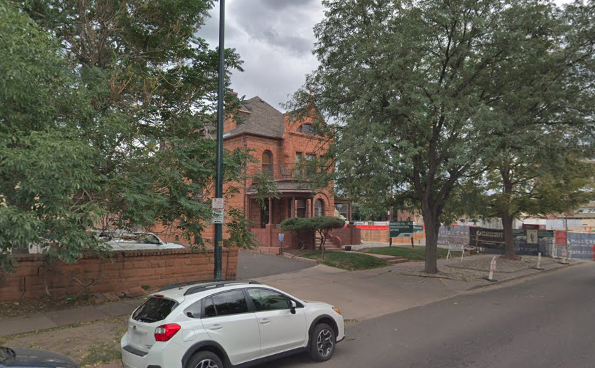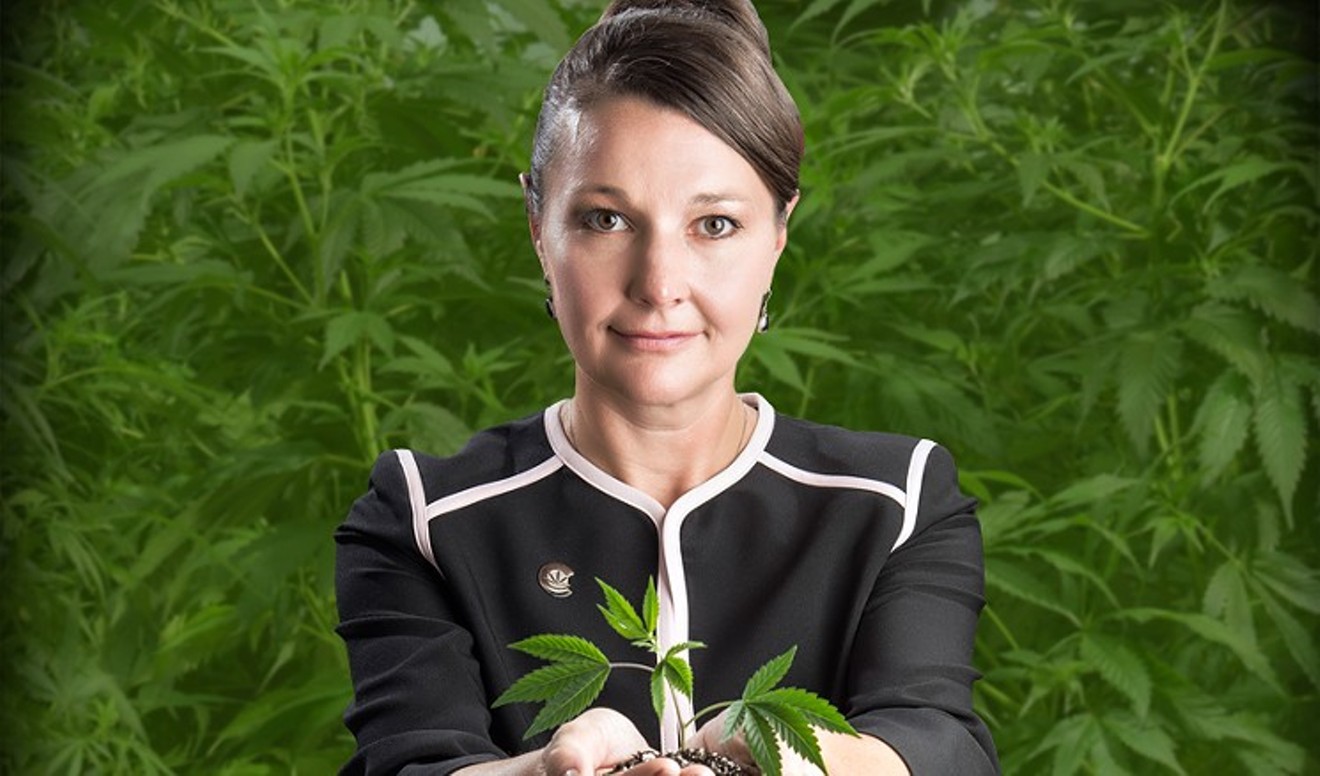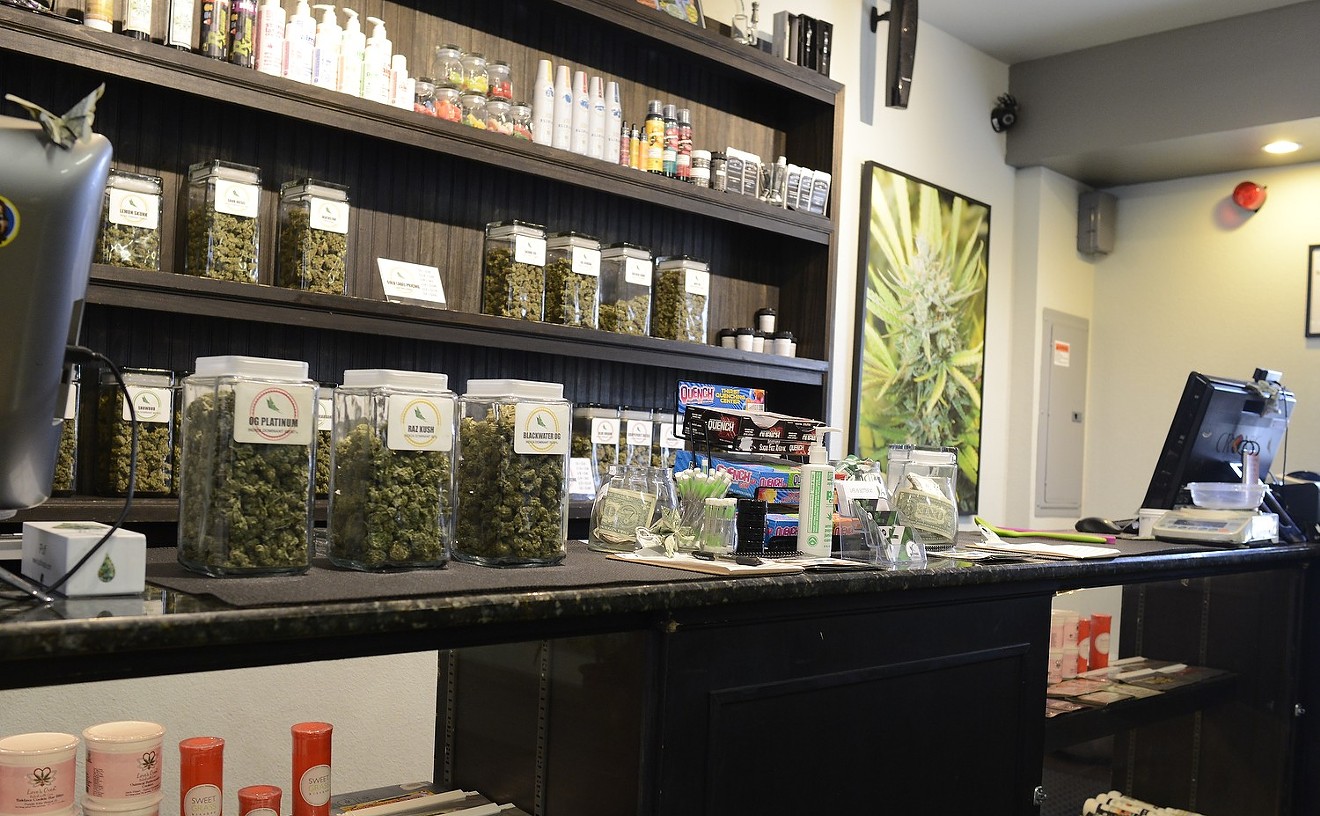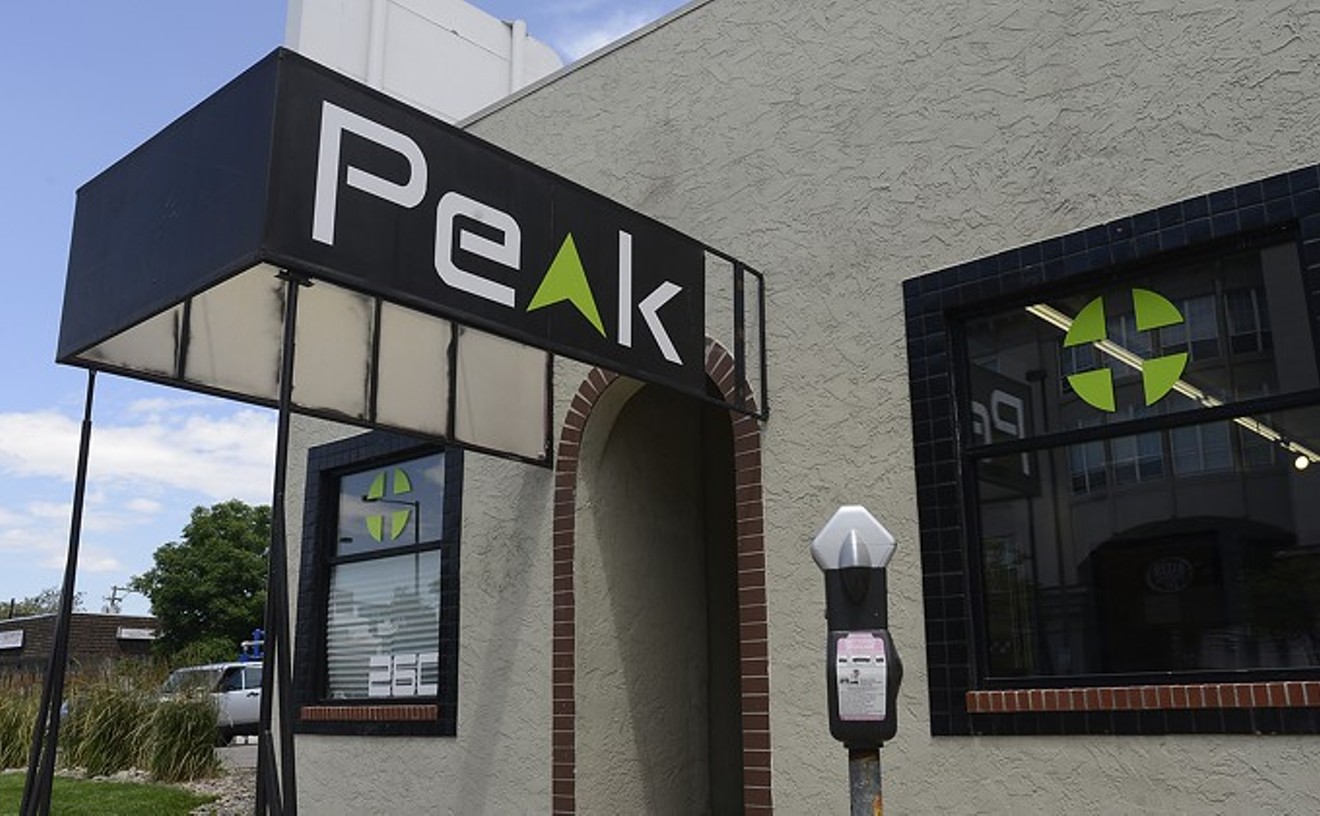Her plans for Utopia All Natural Wellness Spa and Lounge in Capitol Hill called for educational seminars, cannabis-infused massages and medical treatments, support groups and a new ventilation system to make sure that neighborhood nostrils wouldn't notice. Her business plan submitted to the city included letters of approval from five neighborhood organizations, four more than what Denver requires.
They weren't enough.
Nearly four months after Sovine sent in her application for Utopia, it was denied by the Denver Department of Excise and Licenses, which cited a distance requirement that prohibits cannabis-use areas from being within 1,000 feet of locations where children gather.
Sovine wasn't about to take no for an answer, however, so the Utopia founder and CEO secured an appeal hearing with the City of Denver on Monday, July 23, in hopes of persuading a city hearing officer to overturn Excise and Licenses director Ashley Kilroy's denial. "We've tried to work in good faith with the city, especially since this application has been done," Sovine told the hearing officer. "I was very clear and transparent in discussing with them" the property's location conflict, a matter of twenty feet.
Utopia's proposed location is in a historic mansion at 1244 Grant Street, a little over 980 feet from the Third Way Center child-care facility. That technically violates the Denver rule stipulating that social-use areas must be 1,000 feet away from any school, city-owned park or recreation center, or drug and alcohol treatment facility.

Sovine leased a building at 1244 Grant Street, blocks from the State Capitol.
Google Maps screenshot
When Kilroy announced Utopia's denial in May, though, the Excise and Licenses director made it clear she wasn't keen on bending the rules. “We don’t issue a security guard license without a complete criminal background check, we don’t issue a license to a liquor store if it’s within 1,500 feet of another liquor store, and we don’t issue a special-event liquor license if it isn’t submitted within the appropriate time frame," Kilroy said at the time. "It is not unusual for us to deny an application if it is incomplete or deficient."
Frustrated by the surprise decision that she saw as an attempt to sabotage I-300, Sovine appealed Kilroy's veto, taking her case to a city hearing officer. "I've spent every last cent of income I have on ventilation systems," she told hearing officer Martin McKinney on July 23. "They accepted the application knowing there was a setback."
Sovine's claims were backed up by state senator Jack Tate, who told the hearing officer that he'd attended a meeting last September with Sovine and city officials to talk about the proposed application. According to Tate, the city seemed "happy to get an applicant," which have been few and far between, and said he inferred that there "was a discretionary process" involved in consideration of an application.
The location setbacks weren't part of I-300 as approved by voters; they were added later by Kilroy, after a task force set up by the city discussed how to implement the measure. Sovine says she thinks that if Kilroy had the power to add those restrictions, she should have the power to waive them. However, Assistant City Attorney Susan Cho told the hearing officer that it's not that simple to step over the rules.
According to Cho, I-300's language doesn't mention that the Excise and Licenses director can use discretion in waiving the ordinance's rules. She also pointed out that months of rule-making hearings and task force input were required before Kilroy finalized I-300's final rules and regulations. (Another task force is currently evaluating the success and restrictions of the program, and can recommend changes to Denver City Council later this year.)

Ashley Kilroy, executive director of the Denver Department of Excise and Licenses.
Kate McKee Simmons
But the city considers the location restrictions a matter of safety, according to Cho — and safety measures wouldn't frustrate the ordinance. "The fact that the Third Way Center has no issue is not something to consider" in connection with the location restriction, she argued. "Just because this applicant is unable to find a different place or has been working with the City does not negate the order of denial."
Sovine, who is intent on keeping Utopia in Capitol Hill to serve the densely populated neighborhood, says the only location she's found that meets the distance requirements isn't an option because the landlord doesn't want to lease the property to a cannabis lounge. She and her supporters were also quick to point out that Third Way Center neighbor Stoney's Bar and Grill has an outdoor patio for alcohol consumption.
After the hearing ended on July 23, McKinney was given five business days to submit his recommendation to Kilroy. Both sides are allowed to object to any of the hearing officer's conclusions, and then Kilroy has an indefinite amount of time to make a decision on whether she will accept or reject the hearing officer's decision.












